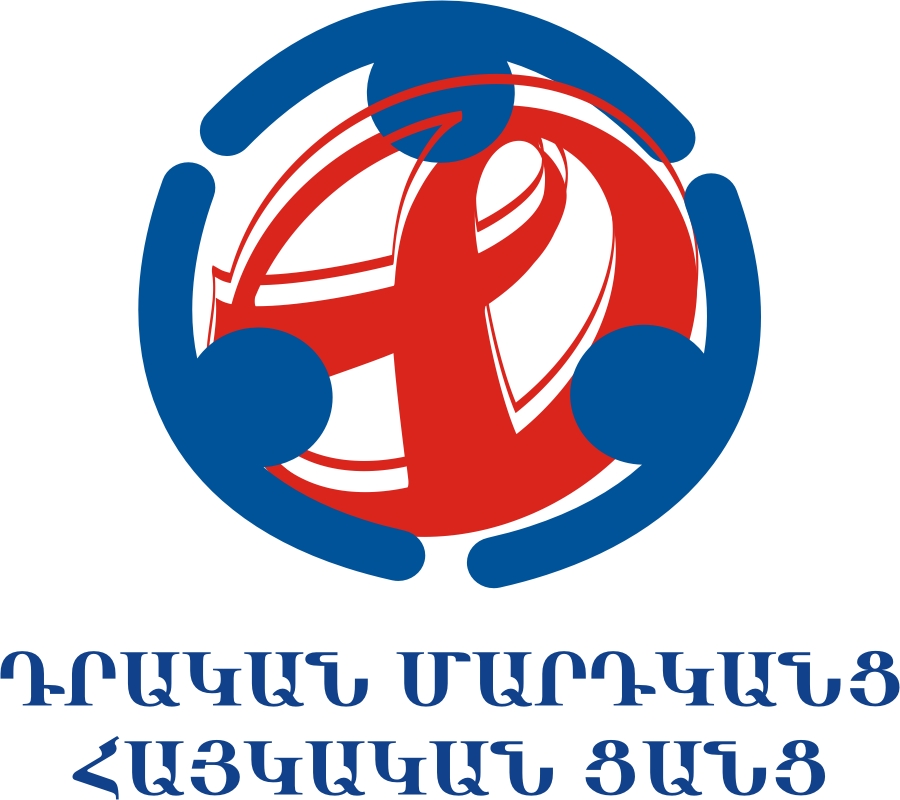
All throughout autumn, the Nersisyan family (their names and surnames have been changed upon the family’s request) went from one hospital to another; there was a time when they would call for an ambulance four times in one day. Though, it was never clear which medical center would accept Gagik, an HIV-positive (Human Immunodeficiency Virus) person, who suffers from encephalopathy (a brain dysfunction that is not associated with an inflammatory process).
Receiving medical aid in Armenia is dependent not only on financial ability, but also on a patient’s symptoms. Gagik’s last denial came from the Republican Hospital’s psychosomatic department. He was sent to the mental hospital in the Avan district. But they would not keep Gagik in Avan, arguing that, “the patient is bedridden, he needs to be looked after, we do not have the appropriate service and cannot give the patient a space for care,” says Sargis, a relative of Gagik’s. According to the Nersisyans, Gagik’s HIV-positive status is the reason he was denied psychosomatic care.
“She read that Gagik has HIV and said that she would not accept a patient like him because, ‘he would infect me and the rest of my patients,’” said Sargis and Gagik’s wife, Anna, about Gayane Margaryan, head of the psychosomatic department, when they visited the medical center for the first time. When they requested a written rejection letter, Margaryan said, “I can write it now, saying that we do not have space and we reject him.”
Doctor Margaryan denies that the rejection had anything to do with Gagik’s HIV-positive status. “We accept patients with AIDS,” she says, adding, “I only stated that we do not have a vacant place at the moment—contact us again, tomorrow or the day after. The department is small. Currently there are 14 beds in the section, we don’t always have space.”
The Nersisyans went to see the deputy director, who told them to come again in a few days. They did as they were instructed; they went back again a few days later and received a written rejection letter. The letter stated that, “the grounds for receiving state funding for somatic illnesses had not been presented (disability etc.).” However, at Avan, the grounds for receiving state funding for care were referred to as a, “social disease.”
Gagik’s conditioned worsened in Vladikavkaz. After being in bed at the resuscitation department there, he was then moved to the Armenian Republican Medical Center in Armenia. According to the Nersisyans, Gagik was in bed for 6 days, and after being diagnosed and having paid a sum of 320,000 AMD, he was moved to the Armenikum Clinical Center, where Gagik’s treatment was left incomplete due to the onset of seizures.
Gagik was moved to the Erebuni Medical Center, where he was kept in the resuscitation department for 3 days, and then in the neurological department for another 3 days, which cost a total of 90,000 AMD. “They asked us if we wanted a private room or a general one. We said that we wanted a general one, but we were not informed that the general room was not free of charge,” says Anna.
“We argued, saying that there was no way for us to pay the fee, and they told us that it did not matter, they kept [Gagik’s] passport and for a long time they did not allow him to leave the hospital. His mother signed a letter of commitment for the payment, but for no apparent reason they asked for 75,000 AMD. They did not provide his medical records, claiming that we did not pay,” says Sargis.
Gagik is brought home. He has three seizures at home, one after the next. They called an ambulance. “They said there was no reason to take him to the hospital, they injected him with magnesium and left. After that he had the second seizure and we called the ambulance again. By the time they arrived he had the third concussion. The ambulance took him and inside the ambulance he had a fourth seizure,” says Anna. “They took Gagik to Erebuni, where they recognized him. Reception sent him home, saying that he was not their patient, that he did not have a chance at resuscitation, that he does not need a doctor, that he was fine. But he only seemed fine because they had given him four different drugs.”
Gagik is moved to Armenikum, where they prepare him for revitalization. “There they did not have the capacity for revitalization, but the director accepted [Gagik] and brought the drugs. Gagik was screaming that night from the pain.”
In the morning Gagik experiences more seizures, so they decide to move him to Grigor Lusavorich Medical Center where, according to the Nersisyans, there were arguments about payment, and Gagik was once again moved to Armenikum, where they prepared for the revitalization procedure.
Three days later, he regained consciousness and returned home. A few days passed, and the story repeated itself. Anna remembers that, “on October 18 he woke up and said that he was not feeling well and that something was going to happen, he always had a sense that something would happen before falling ill. He was listening to our conversations but he could not control himself, he was screaming and tossing in bed.”
Sargis says that Gagik began hallucinating, and they decided to take him to the Nubarashen Mental Institution, though to this day, the Nersisyans do not know if Gagik has mental health issues. At Nubarashen, he received medical attention for 24 days. “The head of the department said, ‘State funding is only valid for 24 days, after that we cannot keep him, go to Avan or Nork.’”
Anna says that at Nubarashen they were subjected to mocking and discrimination because of Gagik’s HIV-positive status.
“One time I heard something that made me cry all day. There were a lot of flies because the trash was kept inside. A guard asked why, after so many years of having no flies, there were flies there now. Another guard said it was because of the department that the flies were gathering around the infected person [Gagik]. The nurse asked them why they were saying things like that. ‘We do not need to be more frightened than we already are.’”
“Once, when I went to the kitchen to wash the dishes, and the nurse came up to me and said, ‘Anna dear, do not come here, do not wash the dishes, if there was not that thing [HIV], there would be no problem, but because there is that thing [HIV], next time do not come here.’”
“For 10 days Gagik had a fever, his temperature would not fall below 39 degrees. I called the doctor. The doctor said he would not go near him and will not touch him, let someone sit him up and I will just listen to his breathing. I helped him get up, I was doing everything because no one would touch him, and if someone touched him, they would wear two pairs of gloves. There were people who would wear three pairs of gloves.”
Sargis remembers when the department head was talking about Gagik, he would not refer to him by his name, but by the word “SPID” (Russian transliteration for AIDS). “He was constantly stressing, ‘For the SPID patient like this, for the SPID patient like that. They came for the SPID patient.’ If they would refer to him by his name, it would be obvious to everyone, and in the presence of visitors they would shout, ‘The patient with SPID, the patient with SPID.’”
The head of the Nubarashen’s men’s department, Laura Grigoryan was surprised that the Nersisisyans were not satisfied with their service, stressing that they treated the patient very well. “He was in a very bad condition, and he got through it. We brought him back from the other side. Is that their gratitude? The whole staff was treating him with care alongside his wife and his mother; we did not leave them with a bad impression. When they left, they said no one had accepted them like we had,” she says.
Grigoryan explained that the restriction on entering the kitchen was that the area was for staff members only, and that they were not following the rules.
“About medical service.” According to the law of the Republic of Armenia, doctors are obligated to maintain the privacy of patients and their health. Doctor Grigoryan assures that Gagik’s HIV-positive status has not been shared or discussed, and that she is convinced that their staff is sufficiently informed about the HIV virus. “All of us knew that there was no virus near him, but in any case safety measures were taken,” she says. When asked what she meant by, “there was no virus”, she answered, “his virus status was already negative.”
It is unknown in the medical world how an HIV-positive status is reversed to negative, in other words, how to remove the virus from the human organism. In any case, HIV is not transferable by air or physical contact; there are only three ways that a person can be infected with HIV: sexual contact, through the blood, and from an HIV-positive mother to to child during pregnancy, birth, or breastfeeding.
After Nubareshen, Gagik is brought home, but they are forced to call an ambulance a few times during the day. The ambulance decides to take him to Grigor Lusavorich, where they tell them there is no chance to revitalize him.
“The last time we called [the ambulance], he was in a very bad condition, and the emergency medical technician said, ‘Let us help you this time. Why won’t any hospital accept you? He needs to be in a hospital.’ He called the ministry of health’s hotline, told them the situation, and they sent us to Erebuni.”
At Erebuni, they come to the conclusion that Gagik does not need neurological or revitalization help, and that he needs medical attention at the Armenikum Center; they refused him with a written letter. At Armenikum they also refused him in a written form, explaining that he needs a psychiatrist. After a decision by the ministry of health, he is sent to Nubarashen again.
“The doctor there asked, ‘Why did you bring him? Wasn’t there somewhere else that he could stay?’” Sargis remembers. However, Gagik was able to stay the night at Nubarashen.
“The head of department came in the morning and said, ‘Why did you bring him here? He is not mentally ill, he needs neurological care,” Sargis continues, saying, “I also heard that they had just disinfected the isolation room, and that they are not going to allow him to stay there”.
At Nubarashen, they explain in written form that Gagik does not need to stay in a mental institution.
With a decision by the ministry of health, the Nersisyans must have another check-up at the neurological center. Would the medical center accept Gagik, after a neurologist’s opinion?
Hovhannes Ishkhanyan
Translated by Dikran Chilingirian



